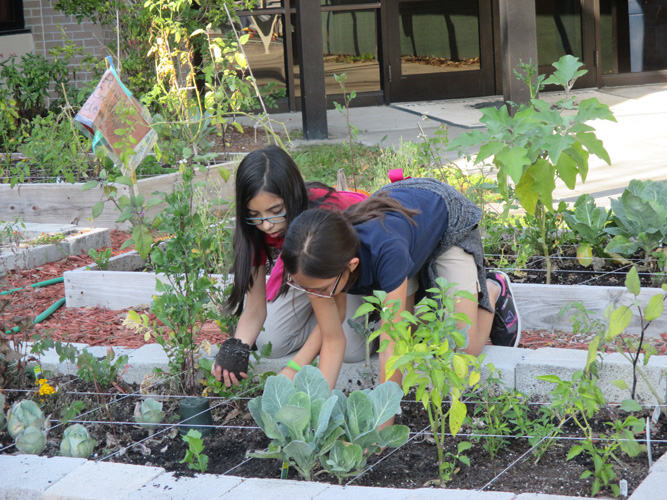
INDIAN RIVER COUNTY — The Square Foot Gardening project, in which elementary schoolchildren learn to grow their own food on mini-plots of land, got off to a successful start but now needs money to continue.
Sebastian Mayor Bob McPartlan heard the request for funds at the last city council meeting but said he was unable to pledge any city money at this time.
He said all members of the city council agreed the project is worthwhile and suggested to the program’s backers that they approach area service clubs for contributions, promising the council would write a “letter of support.”
Calling it “a small-scale project with big ambitions,” Graham Cox of the Pelican Island Audubon Society said Square Foot Gardening project was extremely successful in its first year, 2012, when the PIAS introduced it into several county schools.
A $9,900 innovation grant through a partnership between the National Audubon Society and Toyota enabled PIAS to launch the kid-friendly program, building more than 80 Square Foot Gardens in 13 schools, including Sebastian River Charter Junior High, Fellsmere Elementary, Treasure Coast Elementary and the Wabasso School.
Hundreds of students were introduced to the fun of planting and harvesting their own vegetables and discovered that the answer to “Where does your food come from?” is far more exciting than just “the store or the lunchroom.”
Teachers were able to use the Square Foot Gardens as tools for teaching not only good health, nutrition and conservation, but other subjects such as art, music, poetry, science and math.
“And the students can be outdoors, getting their hands dirty,” Cox pointed out.
There were special salad days in the school cafeterias and the students were able to bring extra food home for their own families to share.
A short video illustrated the excitement of students and teachers as gardens took shape and crops grew.
The project itself is simple and basic: With lumber and soil, a 4×4-foot frame is constructed and divided into 16 1×1- foot squares where each plant variety is allotted its own area based on amounts desired.
“I devoted a year and a half to the program, visiting schools, buying plants, interacting with teachers,” said PIAS board member and project manager Peter Sutherland. “It was so fulfilling to see how the gardens went, to see the children and teachers getting their nails dirty, sticking their hands into the dirt, creating a veggie garden for healthy eating. We thought they would be sustained by the schools but they ran out of steam and money. The teachers loved it but I’m not sure how we can sustain what we’ve started.”
“I took it on as a PIAS director but we need a younger person as project leader,” Sutherland added, “perhaps a university student, part-time, to physically make it happen. It is a two-pronged dream – to sustain the current modules and double them into more county elementary schools.”
Cox explained that costs include “timber, tools, soil, plants and seeds,” in addition to volunteers willing to commit to working with the schools.
One box costs about $100.
For more information, call PIAS at (772) 567-3520.



